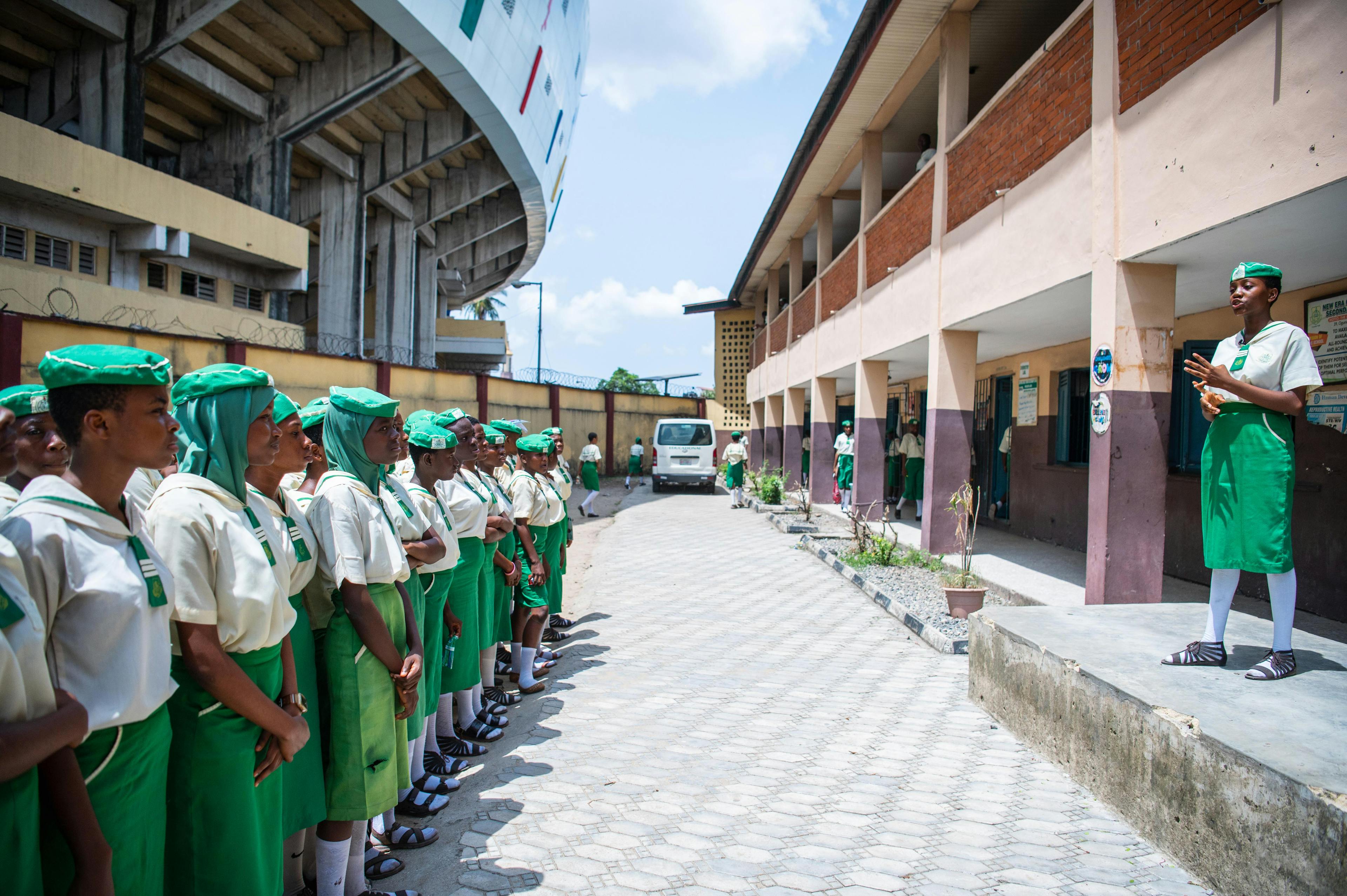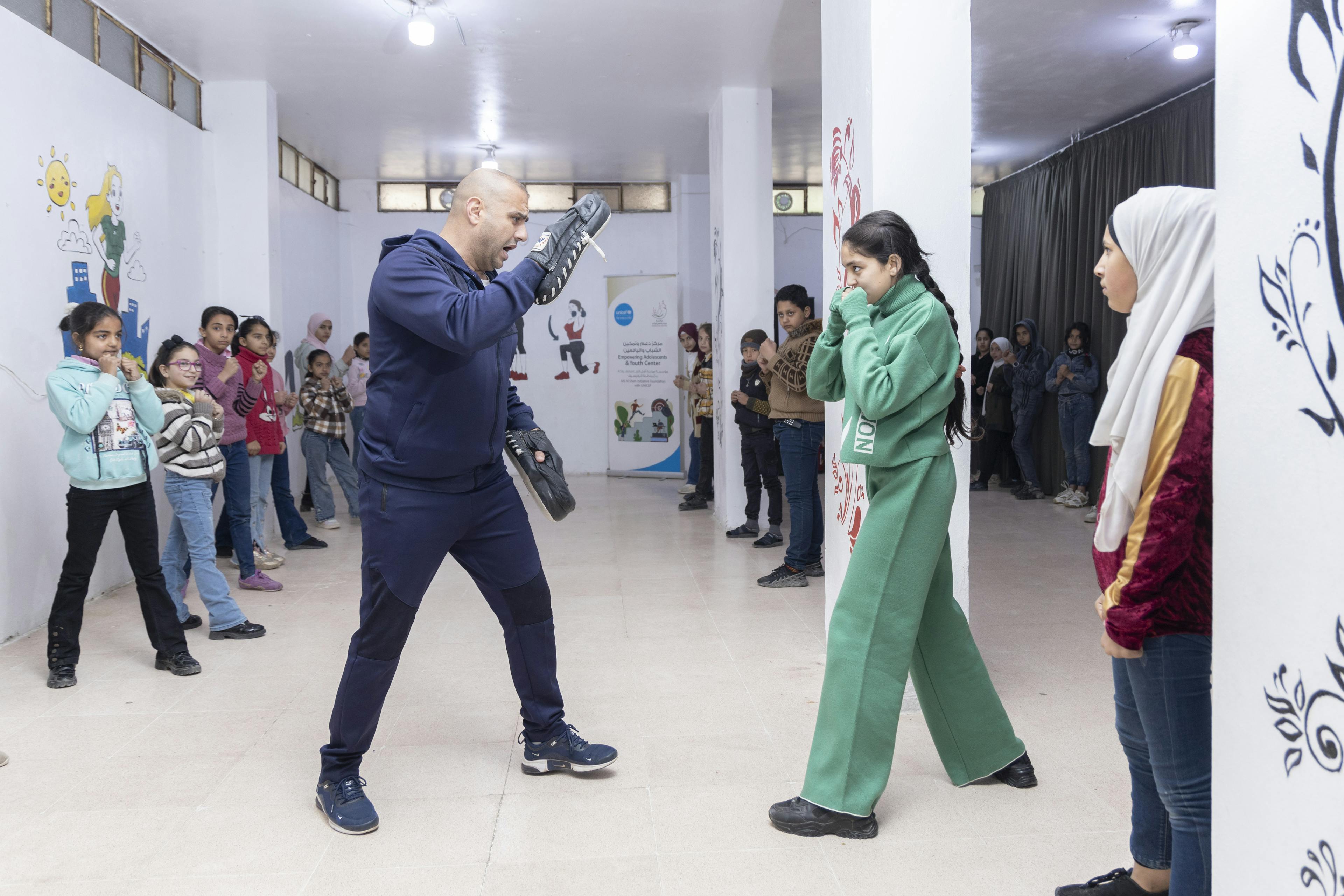
The Good News, November Edition
Home
Stories
The Good News, November Edition
For over 75 years, education has always been a core theme in our mahi around the world. A child’s right to learn is universal, no matter where they live or what their circumstances are. Whether it’s part of an emergency response or supporting governments with long term solutions, everything we do weaves in education.
But education from 20 years ago is no longer going to cut it if we want to prepare kids for the next 20 years. It has to evolve.
The world is becoming smaller thanks to technology, but it’s also becoming more polarized due to the impacts of climate change and the volatile economic and political shifts this brings. It’s no longer just about teaching traditional subjects of math, science, reading and writing, but about how kids can apply these in their everyday lives. It’s also about equipping upcoming generations with the necessary skills and practical applications to meet the needs of a changing global economy, a changing climate and changing childhoods.
A big part of this is psychosocial support, which entails developing kids’ emotional and mental resilience and their social and community support skills.
In this month’s Good News, we take a closer look at some long-term education initiatives that do just this. Preparing kids holistically for a rapidly evolving world.

Nigeria
Across the country, UNICEF is working with various partners to support the government in up-skilling young people and kids both formally in school and those who are not enrolled in education institutions.
In North-West Nigeria, the Education and Youth Empowerment (EYE) programme is a basic and vocational education one aimed mainly at girls in rural, under-resourced and nomadic communities. One of the schools chosen to be a part of the programme is the Sarkin Kebbi Shehu Model Primary School in Sokoto State, established over 100 years ago. The reasons for its selection were the severe learning gaps in foundational literacy, lack of teaching and learning materials as well as a non-existent early childhood education system.
Now that it’s included in the EYE programme, the goal is to ensure inclusive and equitable quality education and skills development for all the students. It’s funded through the Global Gateway (GG) initiative made up of five sectors: Agriculture, Education, Health, Energy and Social Protection. Through modern and inclusive education and training, the initiative aims to enhance connectivity, promote sustainable development, and strengthen economic ties between the European Union (EU) and its partner countries.
Over in Lagos, the New Era Girls Senior Secondary School in Surulere, Lagos, became the focal point of a groundbreaking initiative led by UNICEF: the Girls Employability and Skilled Partnership Program (GESP). It aims to bridge the gender gap in tech-related fields by providing girls with access to computer education and opportunities for skill development and equipped to support their transition from school to work by 2025. Through GESP, UNICEF and partners will support 50,000 adolescent girls and young people aged 15–24 years old in four states across Nigeria.

Syrian Arab Republic
Every child has the right to recreation and play in a safe and healthy environment. Sports can help them develop skills, and foster self-confidence and discipline. In Dar’a, a UNICEF-supported youth-friendly space has conducted 11 kickboxing courses, benefitting more than 200 children and young people, aged 10-24 year, since 2023. Each kickboxing course lasts for 10 days, covering the basics of kickboxing techniques. This was part of a skills development initiative supported by UNICEF, where more than 253,600 adolescents and youth in the country benefitted from employability skills, including life skills and citizenship education, entrepreneurship skills, as well as technical and vocational education and training.
“When children learn self-defence techniques, they become more confident. Parents are more at ease and less worried when allowing their kids to go out by themselves,” said Zeidan who trained young girls and boys in kickboxing at a UNICEF-supported youth-friendly space in Dar’a city, south Syria.

Through 40 adolescent-friendly spaces and integrated centres and 156 mobile teams in 14 governorates, kids were helped to transition from learning to earning. Also, some 539,000 adolescents and youth benefited from social, civic, and digital engagement opportunities, including through volunteerism, building of social cohesion, climate action, and sports-for-development activities. The activities were funded by the German Federal Ministry for Economic Cooperation and Development through the KFW Development Bank, the Global Humanitarian Thematic Fund, the Governments of Canada, Japan and Norway, the UNICEF National Committee for Germany, and the European Union and Government of Norway under the UN Joint Programme to Build and Strengthen Urban and Rural Resilience and the Conditions for Recovery in Syria.

Ethiopia
In a groundbreaking collaboration with the Addis Ababa City Youth and Sports Bureau, UNICEF has played a pivotal role in transforming the lives of over 250,000 young people. Through strategic engagement with various sectoral bureaus, private sectors, and associations, UNICEF harnessed the power of sports, art, and creativity to create a programme that enhances the well-being of vulnerable youth. The initiative reimagines the urban landscape by placing food at the forefront.
The Food Urbanism Initiative fosters local production and consumption of nutritious, safe, affordable and sustainable foods among adolescents and youths living in urban settings of Ethiopia. The initiative also supports WASH, education, child protection, gender equality, disability inclusion and Social Behavioural Change interventions.
The programme provides young people with access to a range of nutrition-sensitive and specific interventions, mentorship, and coaching on important life skills and career development.
The overarching goal of the Food Urbanism Initiative is to empower and support young people to reach their full potential, lead healthy and fulfilling lives, foster employability and encourage them to contribute positively to their communities.
"The interesting thing about the sports centre is that we not only do sports there but also do various side activities that have to do with health and nutrition. For example, we help in the vegetable garden and learn about the nutritious ingredients. After the sports, we eat a meal that is prepared here on site with vegetables from the garden. During the life skills talk sessions, I learn things that I don't even learn at school," says 13-year-old Biruktait Tesfaye.
The work is constant and evolving
As we work towards 2030’s global social development goals, we’re continually collaborating with partners and governments to adapt the education of future generations. Something we’re only able to do with the support of donors, who get it… if we want to see kids thrive in the coming decades, the content and quality of their education needs to evolve. A process that is constant and one we are committed to.

